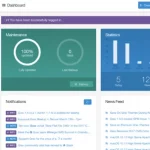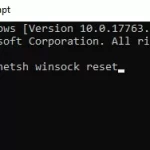It’s something that many people ask themselves before they go to bed: should I turn my computer off at night? Some say yes, others no. But what does the research say? And which side is right for you?
It turns out there are two schools of thought when it comes to turning your computer off at night. One says that shutting down can help prevent hard drive problems or even data loss, while the other argues that sleeping in a dark room with no noise will give you better sleep quality and make it easier for your body to recover from any stressors during the day.

Table of Contents
5 Benefits of Turning Off Computer
Saving power
In order to conserve power, it is necessary to turn off the computer. Turning off the computer will help keep it from running unnecessarily, which can save a lot on energy costs.
When running, computers use a lot of power. If you normally leave your computer running all the time, then you may find that it might take several months for you to recover the difference in energy costs when compared to simply shutting down each day.
Protecting data
By shutting down the computer, your data will be properly saved. You do not have to worry about losing or corrupting any of your work. In addition, you also protect yourself from power surges that might carry electrical currents into your system and cause damage.
Increase in performance
You might be surprised to learn that your computer’s performance can actually improve by shutting down at night. This is because the new time zone will have been established, which cleans out any bloatware or viruses that have been cluttering up your system. Shutting it down also lets the program “rest” for a little while, which can give it a boost in overall health.
Security
Security should be one of your top priorities when you turn off your computer at night. This is because the first thing that a hacker will do after getting inside of your system is to shut down the machine to make sure they have control over it. It’s also very necessary to shut down your computer if there is a problem with it. If you don’t, then you risk corrupting or losing any data that might be on the machine, which can lead to a lot of frustration and wasted time.
Hardware lifespan
By shutting down the computer, your hard drive is not constantly running and can actually live a longer life. You may also want to shut down your computer if you are going to be away from it for a long time as this helps to preserve resources and give your machine a chance to recharge.
Should I Turn My Computer Off at Night?
There are benefits on each side, but how do you know which one is best for you? We’ve got some tips!
If you’re worried about hard drive problems, it’s recommended that you shut down your computer regularly–especially if you use it heavily. This will help prevent any software issues with your operating system or applications that can cause data corruption.
On the other hand, if noise is what keeps you up at night, then there are some benefits to leaving your computer on when you sleep. For one, modern operating systems like Windows allow hard drives to go into a low power mode (called “Green” mode) where they spin down regularly and take less energy to run.
And secondly, if noise affects your sleep quality but turning off the computer means losing access to media you enjoy before bed (or waking up in the middle of the night when your batteries run out), you can always use a laptop. They have long battery life and are generally quieter than normal desktop models.
So, what’s the final verdict? Turn off your monitor when you sleep, but leave your computer on if it doesn’t bother you that much or you need to use it in the middle of the night.





